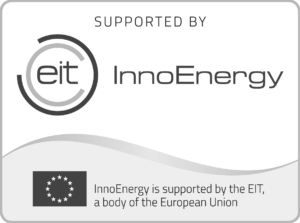30.11.2020
The North Star program is transferring science to entrepreneurship

Tehnopol science and business park, Tartu Science Park, Tallinn University of Technology and the University of Tartu have launched a new program, North Star (EST: Põhjanael), to support the commercialization of science-intensive technologies. The aim of the pilot program is to test an innovative method, create a model of cooperation and later share experience with the community. The project manager of North Star, Triin Ilves, introduced the new program in more detail.
What exactly is the North Star program?
The North Star program is a new type of accelerator for research-intensive companies and teams in Estonia, which is being tested for the first time on a large scale – the project is happening in cooperation with Estonia’s main science-based business developers: Tehnopol, Tartu Science Park, University of Tartu and Tallinn University of Technology.
The teams we selected for the pilot program will go through various development sprints in order to reach investor readiness. Half of these teams have already experienced start-up life, and with them we are moving forward with finding the market and customers and attracting investments. The challenge is certainly different for teams led by university researchers, but all the more interesting as they aim to turn research into a business with global potential (see participating teams at the end of the article).
What is the duration of this program?
The work with the teams lasts a total of nine months, during which we carry out about four development sprints with each team. These are certainly not the usual sprints, known elsewhere as three- to five-day design sprints, we are talking about a few weeks of intensive work here, where we focus on one specific problem with the teams. Each team has a roadmap, and in nine months we will go through important milestones, such as product development, creating a business model, and creating a marketing and sales plan.
How will the teams have changed at the end of the North Star program? How does this program help them?
The North Star program relies heavily on our awesome mentors, who we call the dream team. Being able to take advantage of their skills and knowledge during the program is certainly something that many start-ups do not experience that easily. You could say that during the program the mentors Heidi Kakko, Aleksander Tõnnisson, Mattias Lepp, Timo Kullerkupp, Kristjan Raude and others are like members of the participating teams.
Having brought the companies together with mentors, we make different development sprints according to the teams’ road map. In practice, this means intensive meetings with mentors and focusing on and solving one big task with the help of mentors. If generally the mentoring in start-up programs is limited and takes place as counselling, then in the North Star program, teams have the opportunity to meet and work with the mentors so that if necessary, the mentor actually gets involved in the work and helps to complete something.
Why is Tehnopol helping to organise such a program?
We have taken a strategic long-term approach to the commercialisation of science. Tehnopol is very close to the Tallinn University of Technology and over time we have received several teams with knowledge-intensive business ideas from TalTech. We also want to develop our own competence and knowledge of how to best help these teams and find the best program for them. We often talk about a longer growth curve for science-based entrepreneurship, so they certainly cannot be equated with software-based solutions, which are grown in a slightly different way in the world of start-ups.
Teams participating in the program:
- The solution developed by Plantinvent enables the optimisation of water consumption in crop production and a faster and more flexible response to climate change in plant breeding.
- The idea of DC-DC/AC is to create a universal power electronics converter that is suitable for both DC and AC devices at the same time.
- Unsinkable Robotics is an all-in-one robotic platform for underwater mapping and monitoring.
- KappaZeta helps to monitor large agricultural areas more accurately and more frequently using remote sensing data, thus saving farms time and money.
The North Star (EST: Põhjanael) program is supported by the European Regional Development Fund within the framework of the public procurement “Development of the Estonian Emerging Business Ecosystem and Development Programs for Emerging Entrepreneurs 2020” (project number EU50651).












